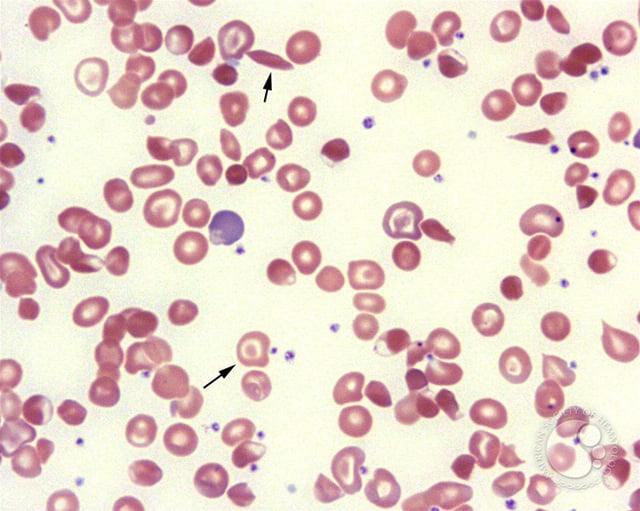
But things are slightly better now for Jawwad and his Sialkoti family; previously they had to travel long distances to get a blood transfusion but thanks to the Sundas Foundation, Jawwad can continue living in his home town, go to school and not have to commute to the nearest blood transfusion facility and waste his precious energy.

Formed in 1998, the foundation is named after Sundas, a 14 year old student from Gujranwala who suffers from thalassemia. While she manages to live a normal life, Sundas is still dependant on regular transfusions for her survival. Sundas’ plight made her parents think of the hundreds of children whose families couldn’t even afford regular blood transfusions, and thus they set up this foundation to help those who could not help themselves.
The foundation was originally established in Gujranwala as a blood transfusion centre and now treats thalassemia, Hemophilia, blood cancer, iron deficiency and other blood disorders
The Sialkot branch started as a blood bank in 1990 but became a transfusion centre in 2005. The foundation recently built its own building which can accommodate up to 1,000 patients and collectively, the branches of Sundas Foundation can treat up to 6,000 patients.

Thalassemia is a painful genetic blood condition that causes the weakening and destruction of red blood cells. Thalassemia is caused by missing genes that affect how the body makes haemoglobin, the protein in red blood cells that carries oxygen to various parts of the body. People with thalassemia make less haemoglobin and fewer circulating red blood cells than normal, which results in mild or severe anemia.
There are three major types of thalassemia that are classified based on the severity of symptoms: minor, intermediate and major. People with thalassemia minor do not experience symptoms or require treatment but the trait can be passed on to their children. If the other parent also carries the trait, the child could develop thalassemia minor by inheriting a trait from one parent, or a more severe form of the disease by inheriting the gene from both parents. People with thalassemia intermedia need some follow-up care and may require blood transfusions under certain circumstances. Those with thalassemia major however need ongoing medical care, including blood transfusions to alleviate severe anemia and therapy to remove excess iron from the blood.
Blood transfusions help to correct anemia and make sure that patient’s tissues get a normal amount of oxygen. This allows thalassemics to live and grow normally. The transfusions also let the bone marrow rest, so that their bones can develop normally and they also slow down or prevent any increase in the size of the spleen

The treatment for people with thalassemia major is a lifelong process and it is extremely expensive, with each blood bag costing between Rs4,000 to Rs5,000. Thalassemia patients are mostly children, since they are born with the disease. “They can live a normal life, go to school, engage in sports and other activities but they have to come to the hospital every two weeks for a transfusion,” says Zahid Khan, the branch manager at Sundas Foundation, Sialkot.
Those who cannot afford the treatment are thankful to Sundas foundation for helping their children cope with the disease. Sundas Foundation is a non-profit organisation and is completely dependent on donations. “Sialkot is an industrial estate, so the industrialists help quite a lot. In fact their donations helped build our new building. We have camps at different institutions, which collect blood on a daily basis, 50 to 60 blood bags are used on a daily basis,” says Khan.
The purpose of this initiative is not only to provide blood transfusions but also therapy and medication to reduce the detrimental effects of regular transfusions. When a person is receiving transfusions on a regular basis, iron can build up to toxic levels requiring iron chelation therapy. Hence, to aid the drainage of iron out of the body, special drugs and medication is also provided by the foundation.
Currently the foundation does not provide Bone Marrow Transplant (BMT), which makes a cure possible and removes the need for frequent transfusions, so long as you can find a compatible donor. “It is a risky procedure and extremely expensive, costing about Rs3 million. So we do not provide this treatment as yet,” admits Khan.
The foundation has recently started working on a program to create awareness about thalassemia and blood cancer. “Pre-marital testing for thalassemia will greatly reduce the number of new cases of thalassemia major,” says Khan.

There was a time when the treatment of thalassemia was not available in Pakistan, and there have been incidences where entire families moved abroad to save the life of a beloved family member. Organisations like Sundas have made it a little easier; they bring light into the dark lives of many people. Though they may not be able to make their lives perfect, they are still a ray of hope in the gloom.
* Names have been changed
Thalassemia in Pakistan: Know the facts
- Estimates show that the number of existing thalassemia patients in Pakistan has exceeded 100 thousand.
- At least 8,000 new cases are added yearly, as that many children are born with thalassemia major. The figures are of course not confirmed since many children die young with parents never finding out the cause of death, especially in under-privileged and rural parts of Pakistan.
- Thalassemia experts say almost seven per 100 people are thalassemia-minor patients in Pakistan and they are the ‘carriers’ of the disease.
- Individuals with thalassemia are most often of African, Asian, Mediterranean, or Middle Eastern descent.
- All unmarried people and those married ones who are planning to have a child (even though their existing children are normal) should get themselves tested for thalassemia carrier status by a blood test called HbA2, Hb Electrophoresis or Hb HPLC
- Resolutions suggesting that Pakistani couples should be required to undergo mandatory blood testing before marriage were brought up in both the National and Provincial Assemblies. “The Resolution was passed in Khyber Pakhtunkhwa but no follow-up work has been done on it. The Punjab assembly passed it but took it back. Every now and then, a conscientious member of the Sindh Assembly suggests it, but others shut them up,” says Ayesha Mehmood, official spokesperson for Fight Against Thalassemia (FAiTH).
- Other countries like Saudia Arabia have made it compulsory for couples about to marry to undergo premarital examinations, seeking to protect the coming generations against genetic disorders, including thalassaemia.
- Despite the intake of blood every two weeks, the patient’s life expectancy is not more than a maximum of 25 years of age.
- The only permanent form of treatment is Bone Marrow Transplant, which is an expensive treatment and not without side-effects. One side effect patients worry most about is infertility.<<
Published in The Express Tribune, Sunday Magazine, January 27th, 2013.
Like Express Tribune Magazine on Facebook to stay informed and join the conversation.
COMMENTS (3)
Comments are moderated and generally will be posted if they are on-topic and not abusive.
For more information, please see our Comments FAQ

1729301728-0/Taylor-(3)1729301728-0-165x106.webp)


1729298320-0/usher-(1)1729298320-0-165x106.webp)












Countries like Saudi Arabia and Qatar have made it mandatory for unmarried couples planning to get married to get tests done for Thallasemia. I wonder when our government will wake up to address this issue.
Great job. Best of Luck!
Wat a great start Roshanay ... Welldone ... Keep it up. As for the topic undoubtedly Thelesemia, Polio, Hepatitis and few other diseases are unfortunately on their way to become another major crisis for Pakistan. We the people in general and our individual capacity and Govt in particular need to take some concrete steps if we want to keep our future generations healthy. It is ticking bomb and realisation needs to come fast. Thanks for shedding light on such an important issue in such a brief but effective manner. I think your practice in aadeez times is coming into play :P